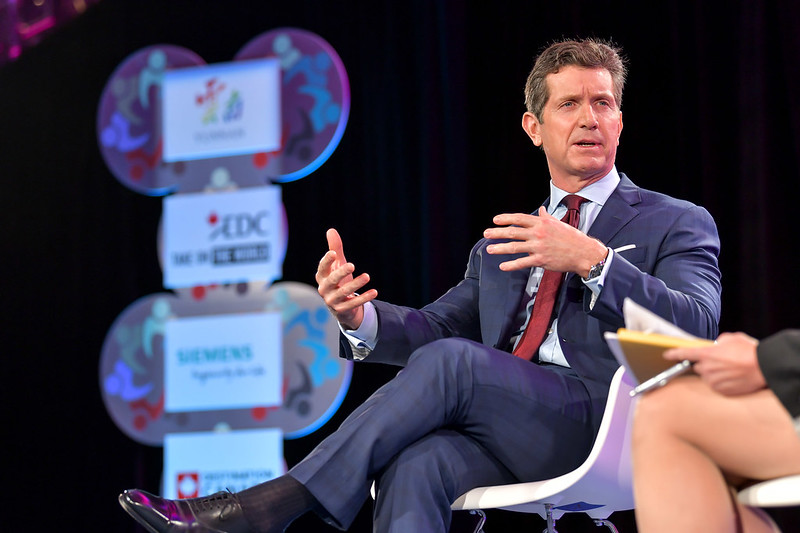
Today, Johnson & Johnson CEO Alex Gorsky questioned President Biden’s proposed corporate tax hikes. The Biden administration has been fighting to raise the corporate tax rate to 28 percent in their upcoming infrastructure plan, though Senate Democrats will likely seek a 25 percent rate instead.
As reported by Yahoo Finance, Gorsky questioned common, leftist rhetoric around tax reform:
“With respect to tax reform, we share a lot of rhetoric about a race to a bottom. I don’t know why folks are anxious to have a race to the top in terms of rates either.”
He went on to note how raising the corporate tax rate, either to 25 or 28 percent, could make the United States uncompetitive:
“If we want to raise rates even to 25% and you include tax from states, we become the highest-rated developed country in the world with respect to tax rates. So I think it’s something that we need a little more fact-based dialog on and making sure that we remain competitive.”
This is correct. The U.S. federal corporate tax rate is 21 percent. However, states also levy their own corporate tax rates, averaging an additional 6 percent. Because this state tax is deductible when paying the federal corporate rate, the combined national and subnational rate averages out to 25.77 percent.
A 25 percent federal rate would therefore result in a combined federal and state rate of 29.5 percent, higher than Communist China and higher than the average OECD rate.
OECD average national + subnational rate: 23.51%
China’s rate: 25%
U.S. national + subnational rate IF Democrats raise federal rate to 25 percent: 29.5%
Raising the corporate tax rate encourages companies to move investment overseas or not to invest at all, thus harming the U.S. economy, jobs, and wages. Gorsky noted that, four years after the Republican Tax Cuts and Jobs Act lowered the corporate rate from 35 to 21 percent, Johnson & Johnson is on track to increase investments in the U.S. by 25 percent, or more than $30 billion. Because of these investments, Johnson & Johnson has been able to hire 3,000 more workers.
There is abundant evidence that corporate tax hikes lead to lower investment and employment:
- A Treasury Department study estimated that “a country with a 1 percentage point lower tax rate than its competitors attracts 3 percent more capital.” This is because raising the corporate rate makes the United States a less attractive place to invest profits.
- According to the Stephen Entin of the Tax Foundation, labor (or workers) bear an estimated 70 percent of the corporate income tax in the form of wages and employment. As Entin notes, 50 percent, 70 percent, or even 100 percent of the corporate tax is borne by workers.
- A 2012 Harvard Business Review piece by Mihir A. Desai notes that raising the corporate tax lands “straight on the back” of the American worker and will see a decline in real wages.
- A 2012 paper at the University of Warwick and University of Oxford found that a $1 increase in the corporate tax reduces wages by 92 cents in the long term. This study was conducted by Wiji Arulampalam, Michael P. Devereux, and Giorgia Maffini and studied over 55,000 businesses located in nine European countries over the period 1996-2003.
- Even the left-of-center Tax Policy Center estimates that 20 percent of the burden of the corporate income tax is borne by labor.
Raising the corporate rate to 25 percent, as some Democrats are calling for, would leave America with a rate higher than many foreign competitors and harm American workers, businesses, and investment.

